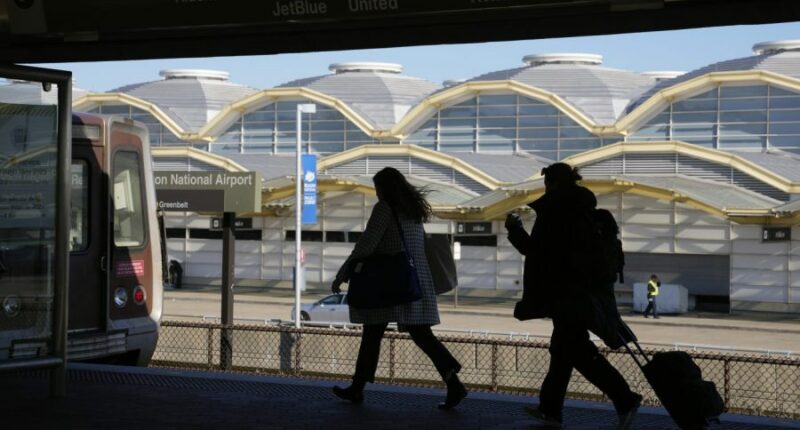Share this @internewscast.com

The Trump administration recently announced that it will abandon an initiative that aimed to require most airlines to reimburse customers for delays and related travel disruptions.
The Department of Transportation described this decision as part of their efforts to roll back what they consider federal overreach introduced under the Biden administration.
“Some policies proposed or enacted by the previous administration exceeded what Congress mandated by law, and we aim to reevaluate those excess requirements,” a department spokesperson informed The Hill on Monday.
Here are five things to know about what the shift means for consumers:
Rule change had not yet taken effect
The rule in question was finalized during then-President Biden’s term in December, with plans to implement it returning to President Trump’s administration. This was an effort in the campaign against “junk fees” that burden consumers with significant costs annually, either directly or through strict refund practices.
The proposal for mandatory compensation for airline disruptions was introduced in 2023 and had reached the final approval stage, with public feedback opened until February this year, before being set into motion.
The Department of Transportation revealed last week that the plan was being withdrawn “consistent with Department and administration priorities.”
Passengers would have received refunds
According to the plan, travelers could have received cash compensation of up to $300 for domestic flights delayed by at least three hours, and up to $775 for delays exceeding nine hours, in addition to reimbursement for unexpected expenses like food and lodging.
U.S. and foreign air carriers with U.S. destinations would have been required to adopt clear customer service plans to provide cash compensation only when airlines were responsible for travel disruptions. It would not apply to instances outside the airlines’ control, such as weather delays or mass electrical outages in areas.
Several European countries have established similar requirements for airlines.
Airlines applaud the reversal
Airlines for America, a trade group that represents major air carriers including American Airlines, Delta Air Lines, United Airlines and others, lauded the Trump administration’s reversal of the proposed compensation requirement.
“We are encouraged by this Department of Transportation reviewing unnecessary and burdensome regulations that exceed its authority and don’t solve issues important to our customers,” the group said in a statement Thursday.
Former New Hampshire Gov. Chris Sununu (R), who served eight years as the state’s top executive and has often shifted between supporting Trump and criticizing him, is set to become president and CEO of Airlines for America on Tuesday.
Buttigieg unfazed by move
Former Transportation Secretary Pete Buttigieg, who shepherded the Biden-era proposal, said in a social media post last week that he wasn’t surprised by the reversal because of Transportation Secretary Sean Duffy’s past ties to the airline industry.
“Our billionaire President put an airline lobbyist in charge of the Department of Transportation. So no, this is not a surprise,” Buttigieg wrote on BlueSky, with a link to a post about the change.
What’s next?
Several lawmakers have proposed legislation in the past that would mandate airline carriers compensate travelers for covered disruptions.
The Transportation Department, in its statement to The Hill, indicated it would follow whatever Congress decides.
“We will faithfully implement all aviation consumer protection requirements mandated by Congress, including the requirement to refund ticket prices to passengers in the case of airline canceled or substantially delayed flights when consumers choose not to travel,” a spokesperson said. “Some of the rules proposed or adopted by the previous administration, however, went beyond what Congress has required by statute, and we intend to reconsider those extra-statutory requirements.”











